Latest Posts

Designing CSRR-Based Sensors to Monitor Chronic Kidney Disease
Chronic kidney disease can be effectively diagnosed, prevented, and treated through the use of noninvasive CSRR-based sensors. Researchers optimized the design of these sensors with simulation.
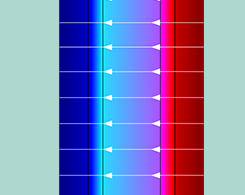
Analyzing Reverse Electrodialysis Units with Multiphysics Modeling
Pass the salt…for a clean energy solution. Salinity gradient power relies on osmosis between fresh- and saltwater to generate power, and simulation can help analyze and optimize such systems.
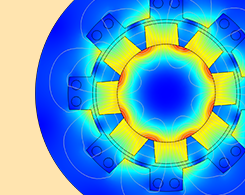
Simulating the Electrothermal Transients in Superconducting Magnets
In order to design superconducting magnets for a particle accelerator, such as the Large Hadron Collider at CERN, researchers need to simulate and optimize their electrothermal transients.

How to Analyze Thermoelectric Cooler Designs with a COMSOL App
A simulation application, such as one for a thermoelectric cooler design, can be used to test a variety of parameters in order to optimize a device for a specific use.
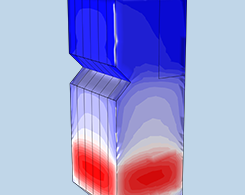
Analyzing Utility Boiler Designs by Simulating Radiative Heat Transfer
To study a utility boiler furnace, you need to account for the effects of radiation, which is difficult to solve for analytically and study experimentally. That’s where simulation comes in.
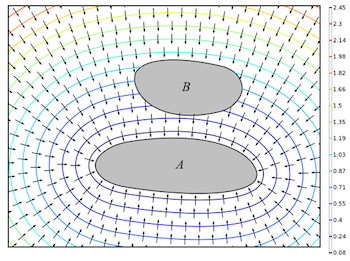
How to Compute Distances Between Objects in COMSOL Multiphysics®
Compute the distance between two deforming objects in the COMSOL Multiphysics® software. Here’s how…
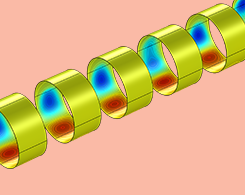
Comparing Hydrodynamic Bearings with Rotordynamics Analyses
Compare the load capacities for different types of hydrodynamic bearings and determine which is best suited for your area of study by using the Rotordynamics Module.
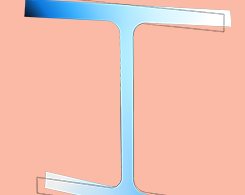
How to Analyze Beam Sections Using the Beam Section Calculator
Simulation applications can be used as utility tools to compute the properties and parameters of a component or device. In this example, the application analyzes beam section geometries.



